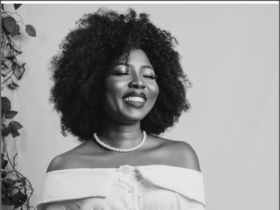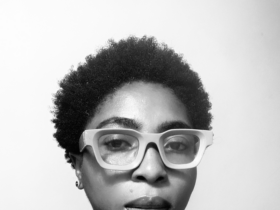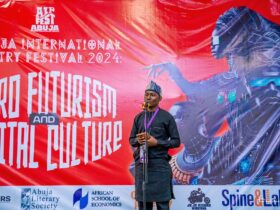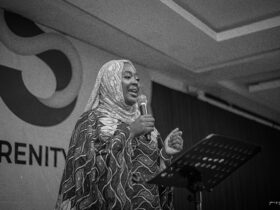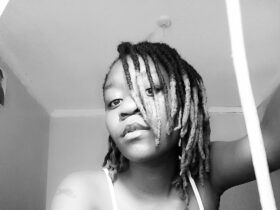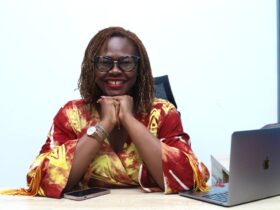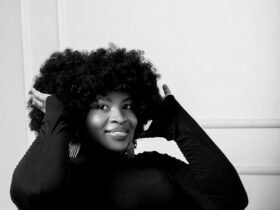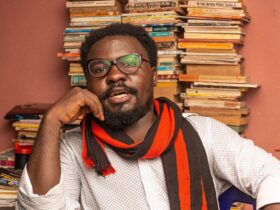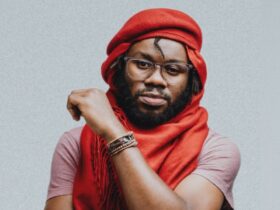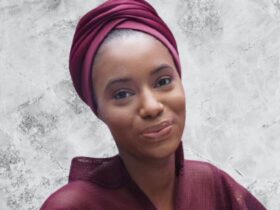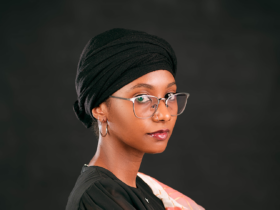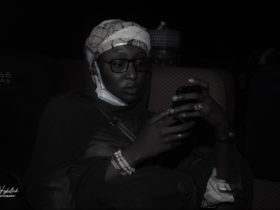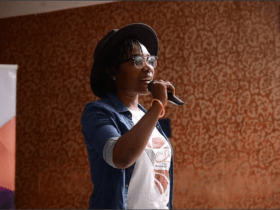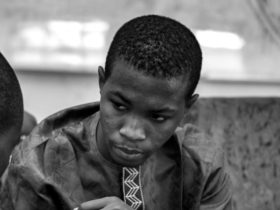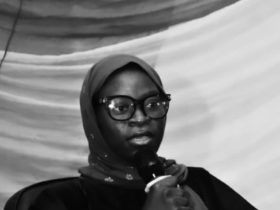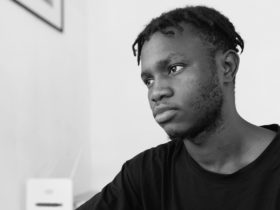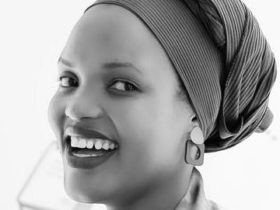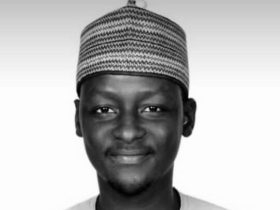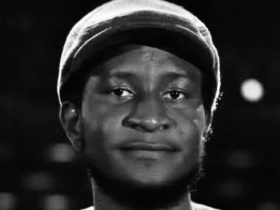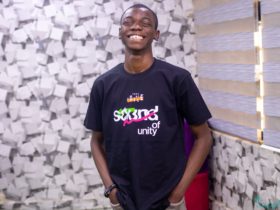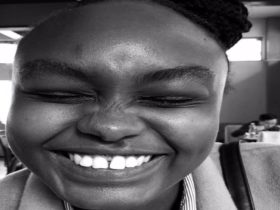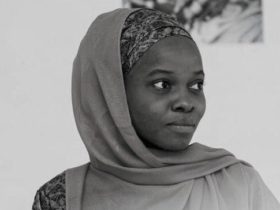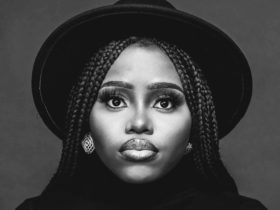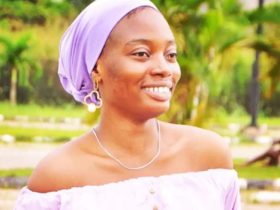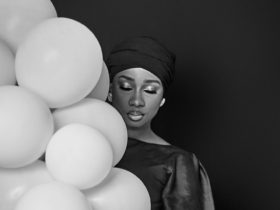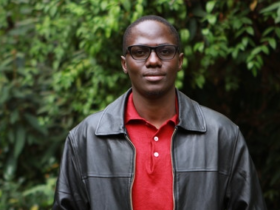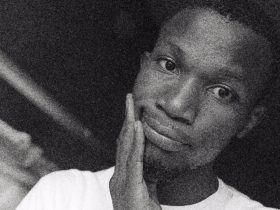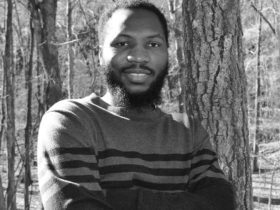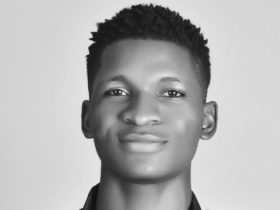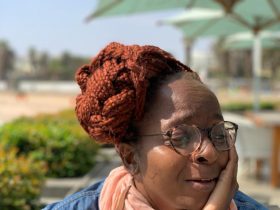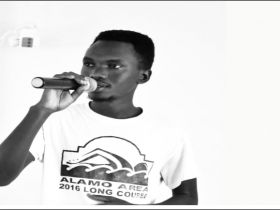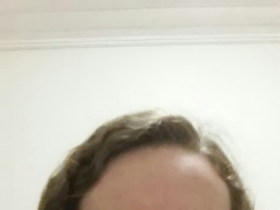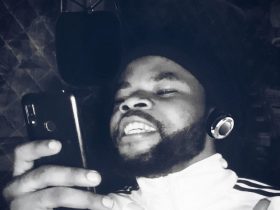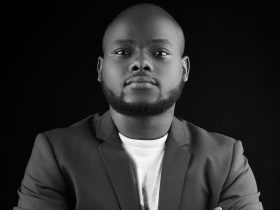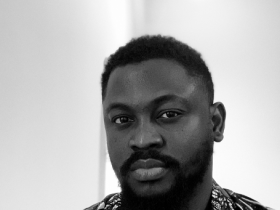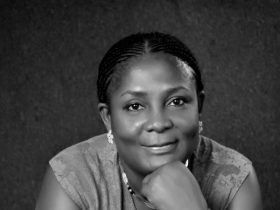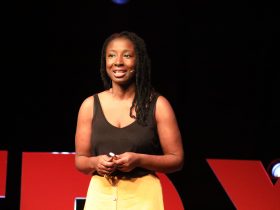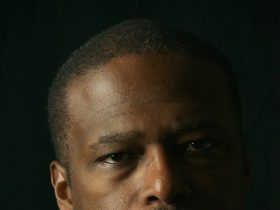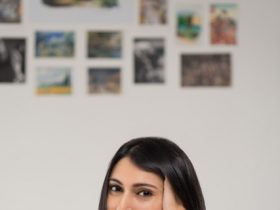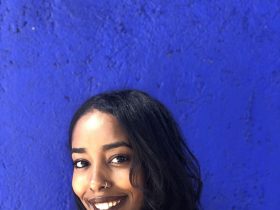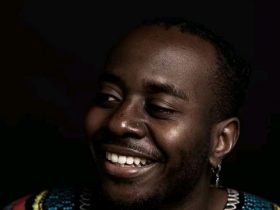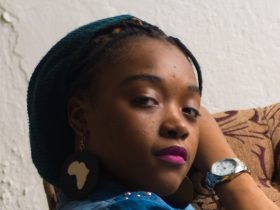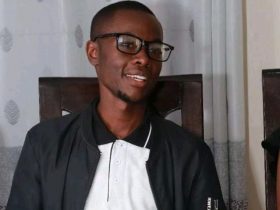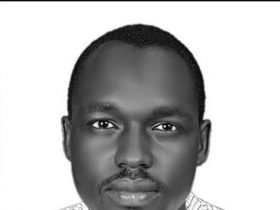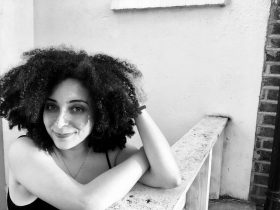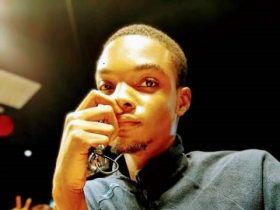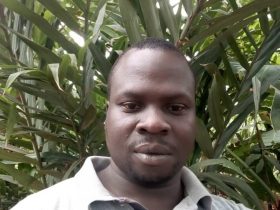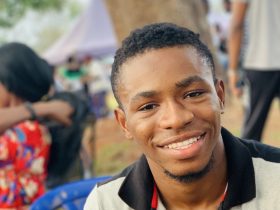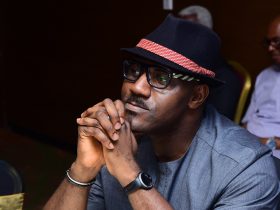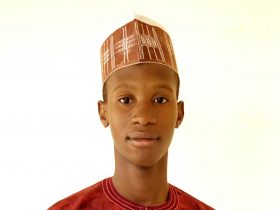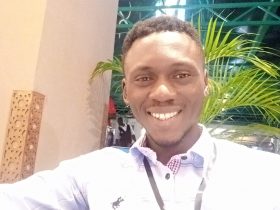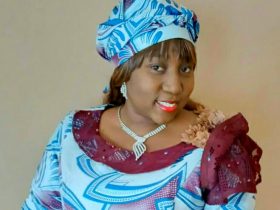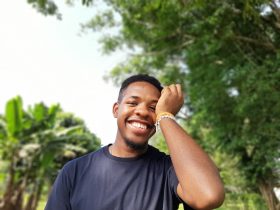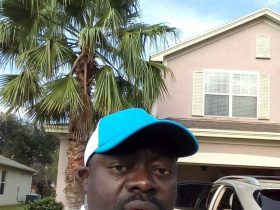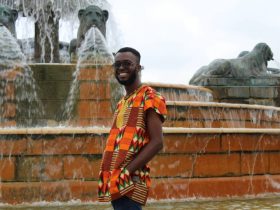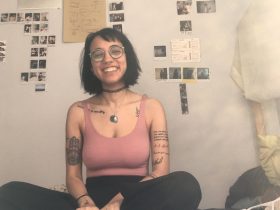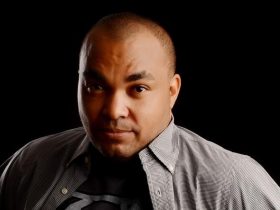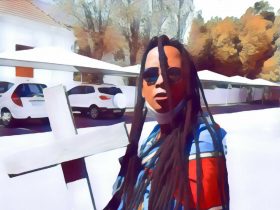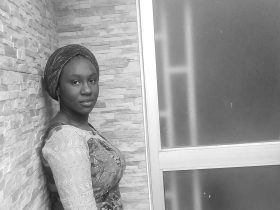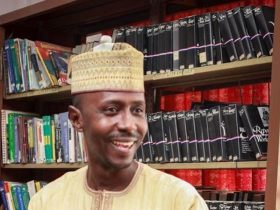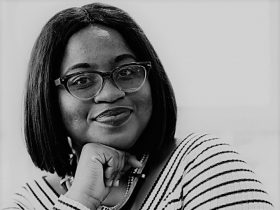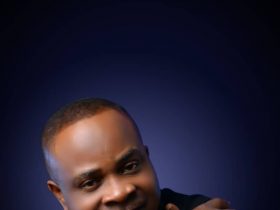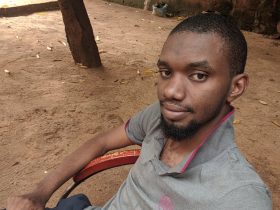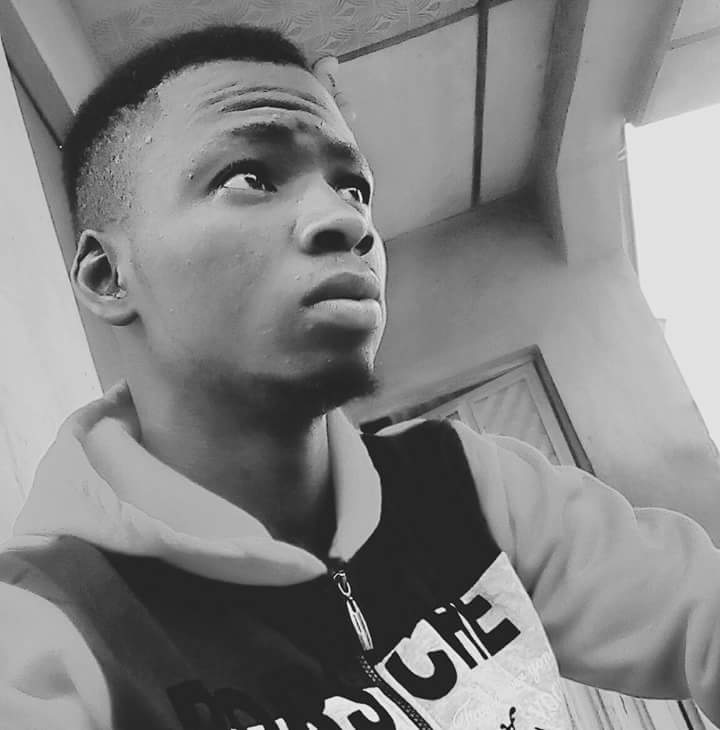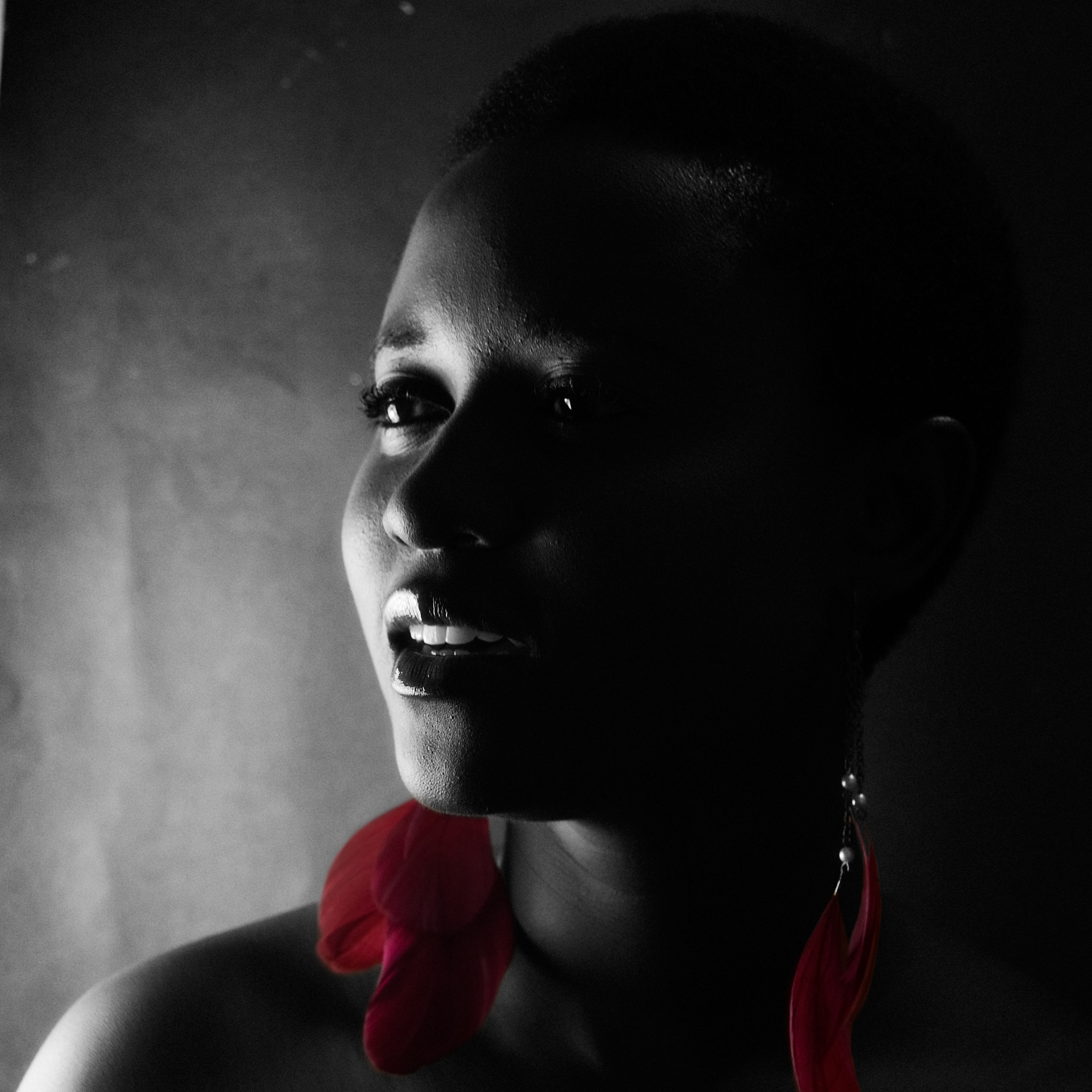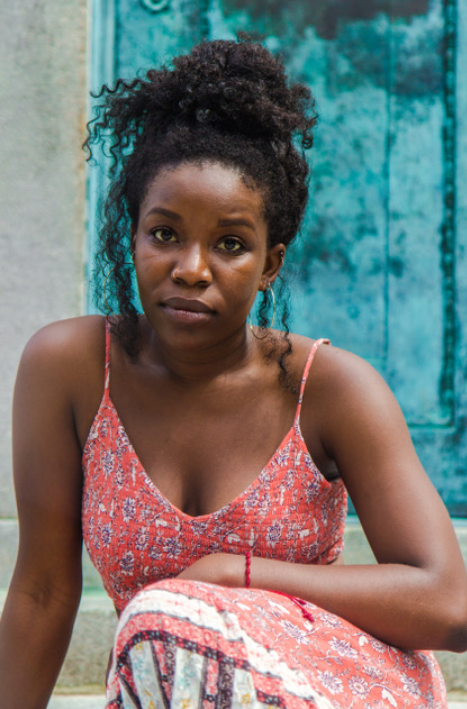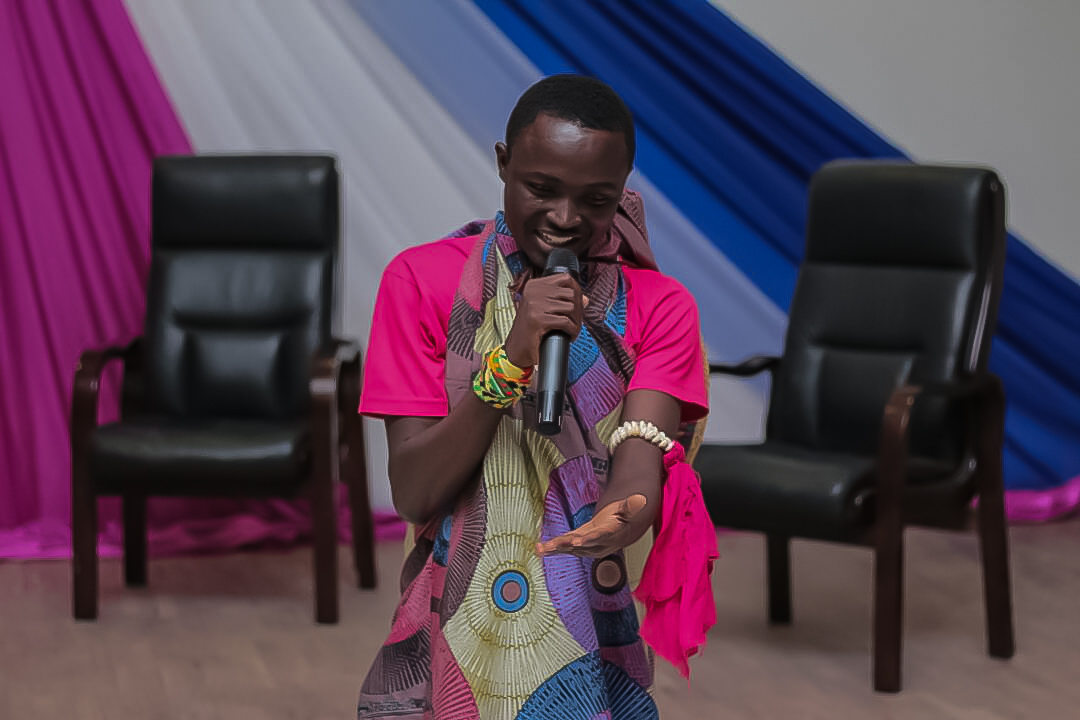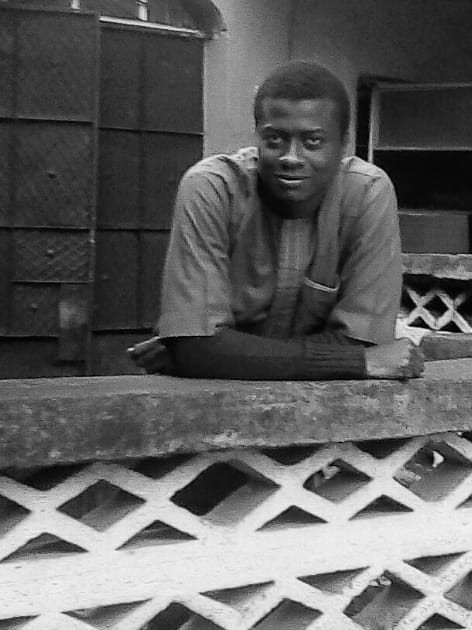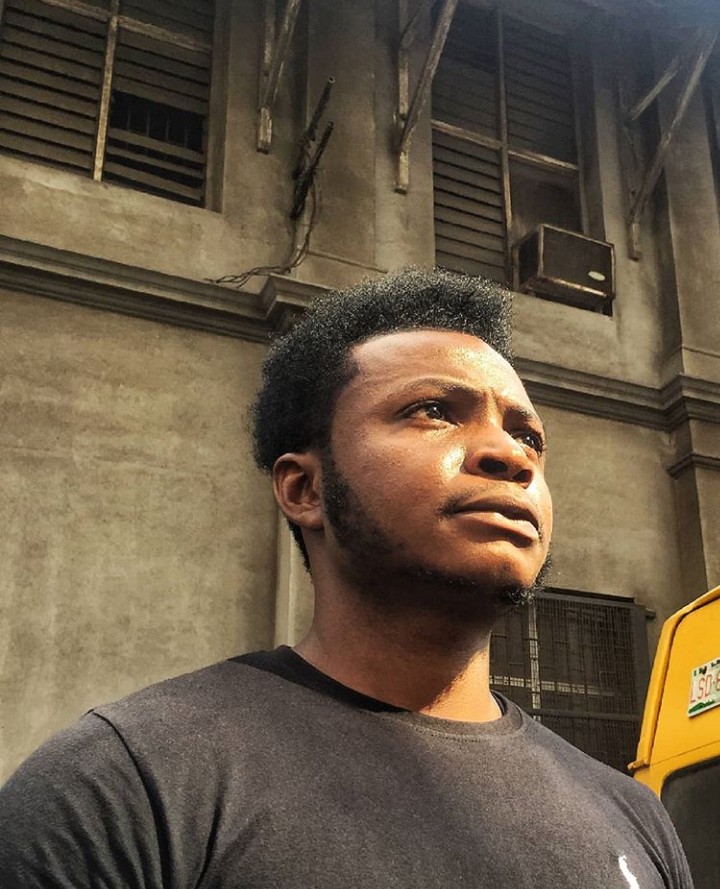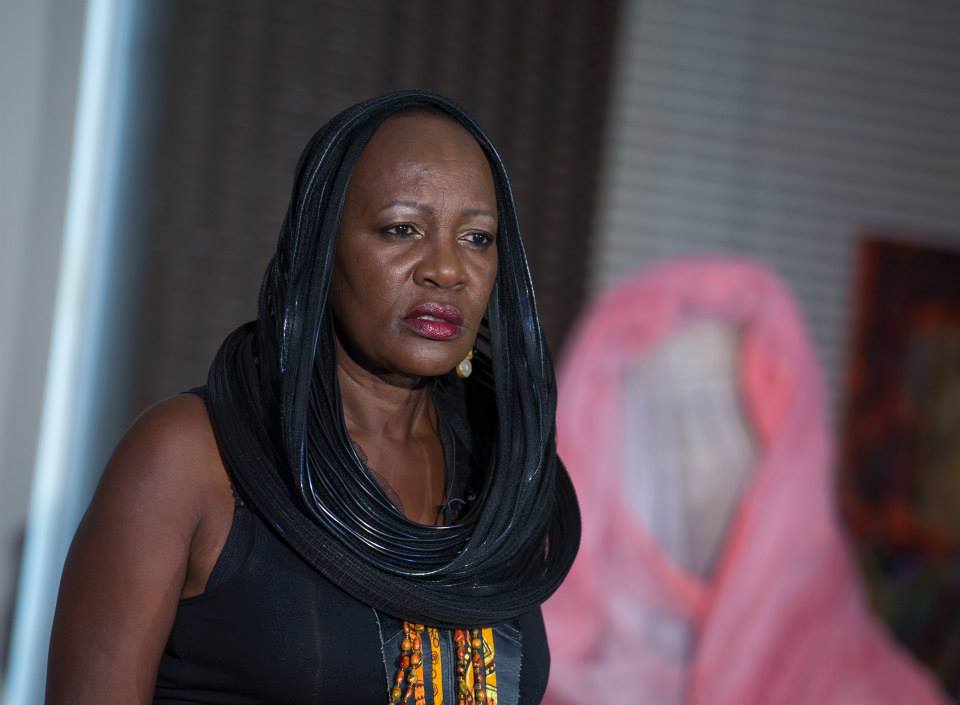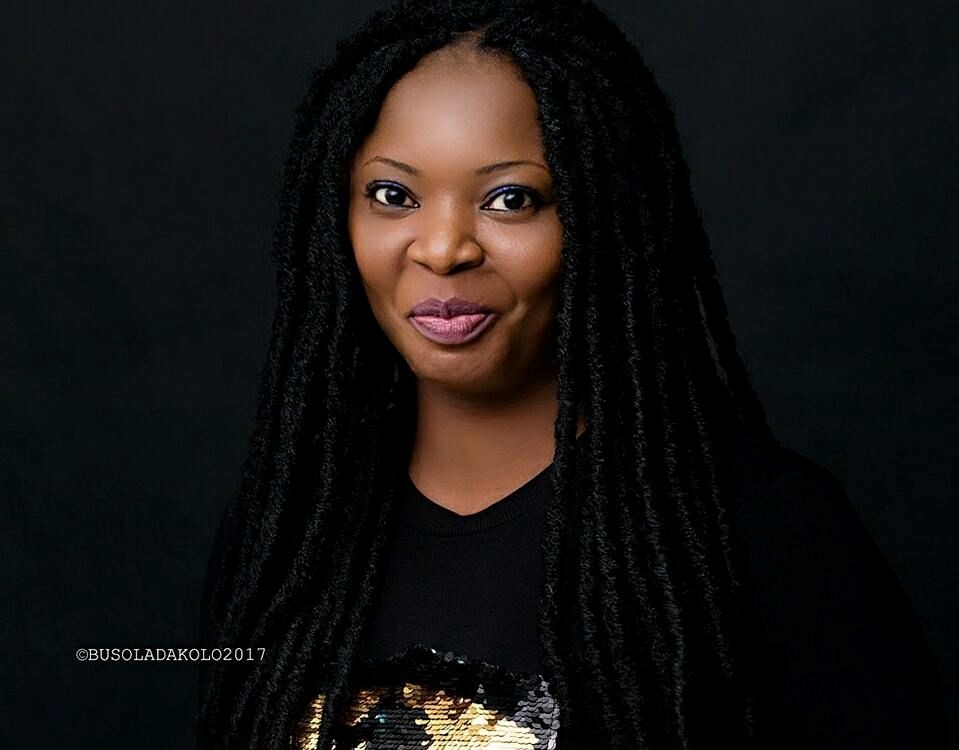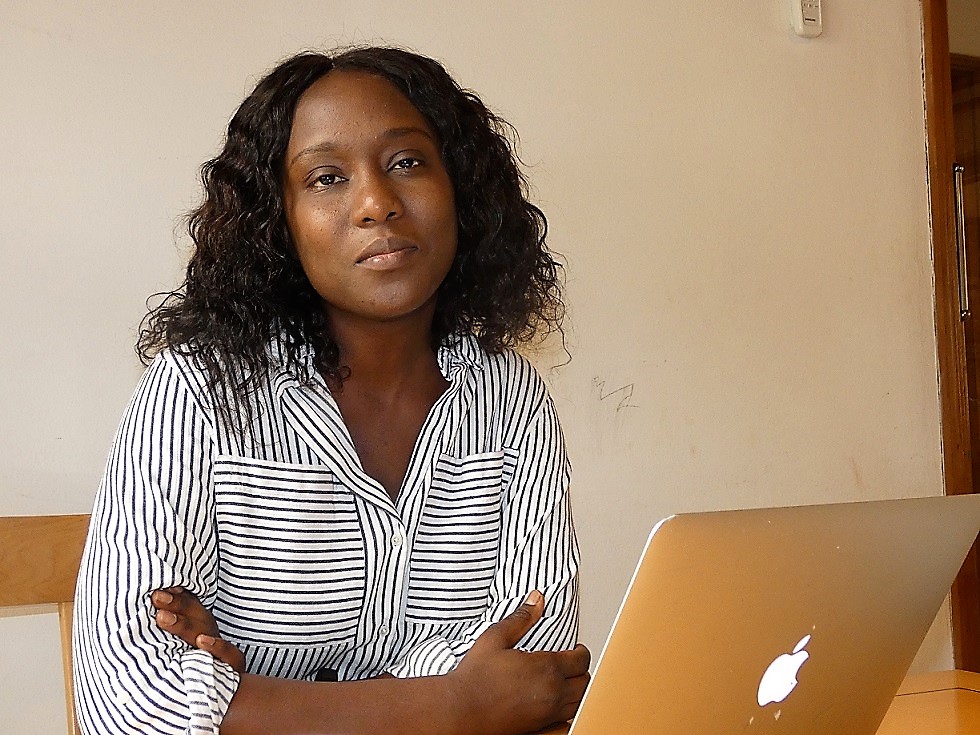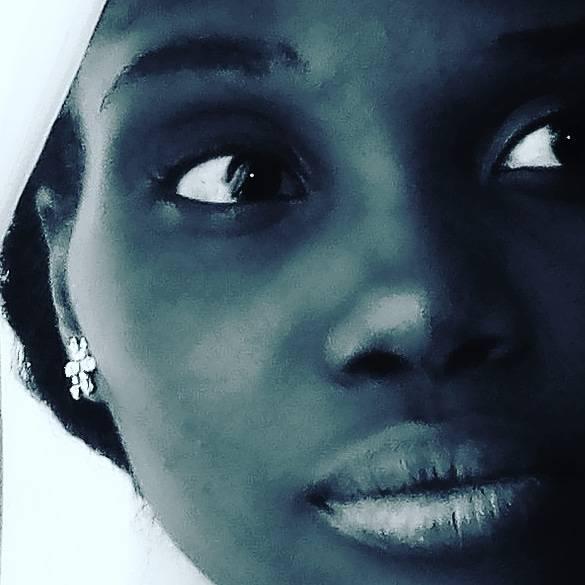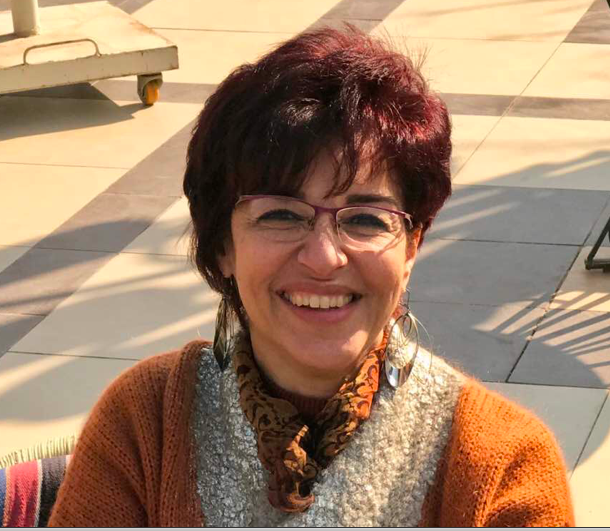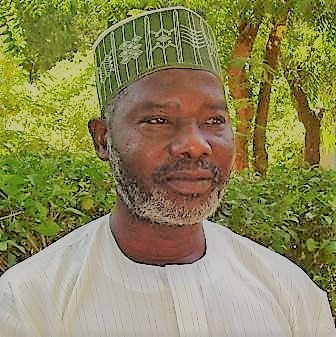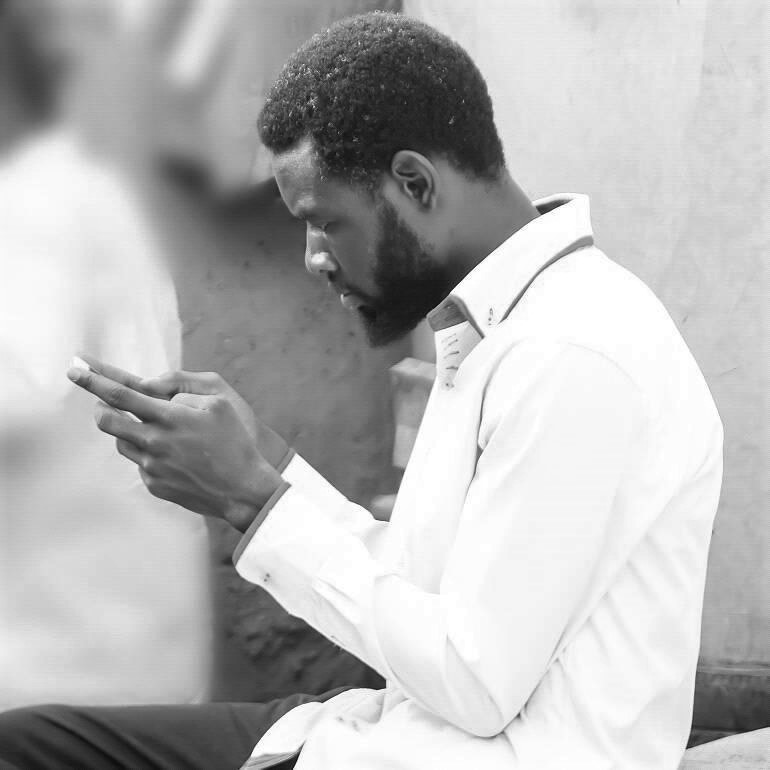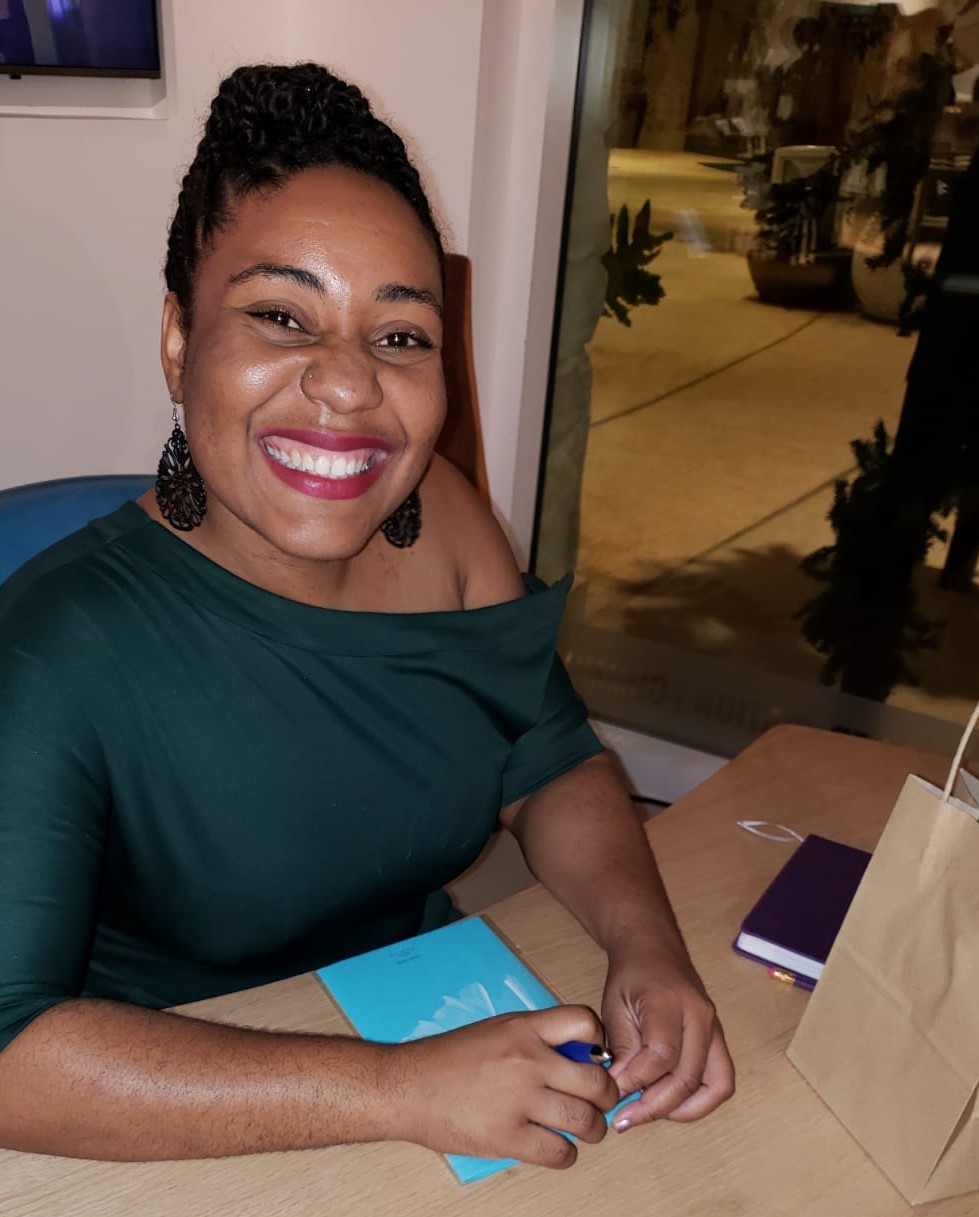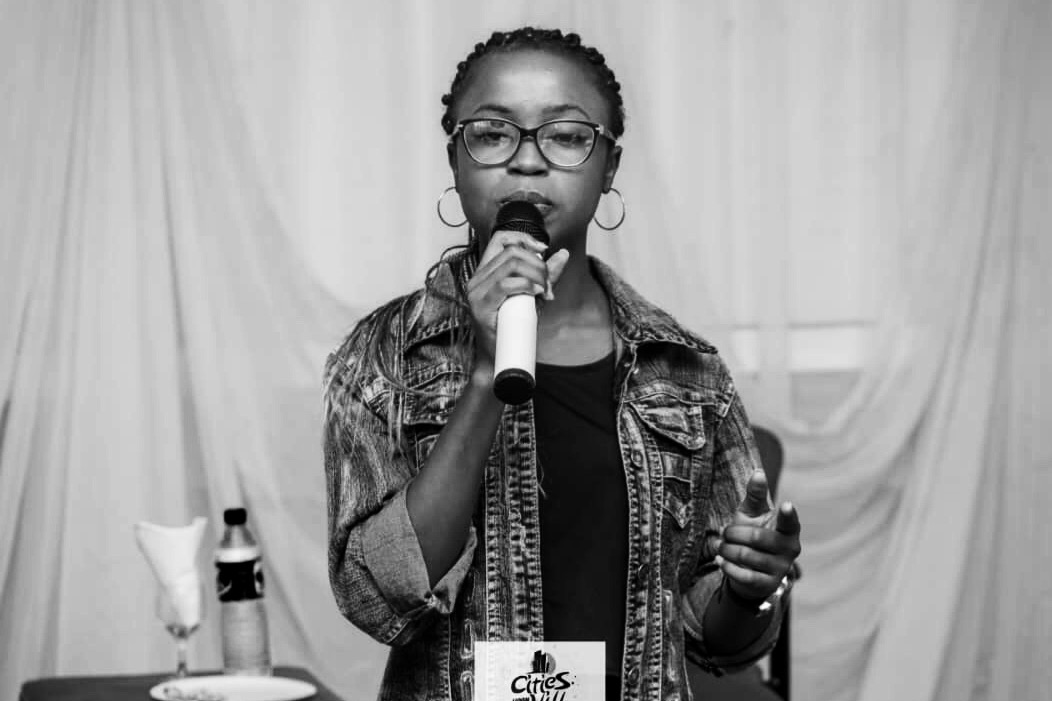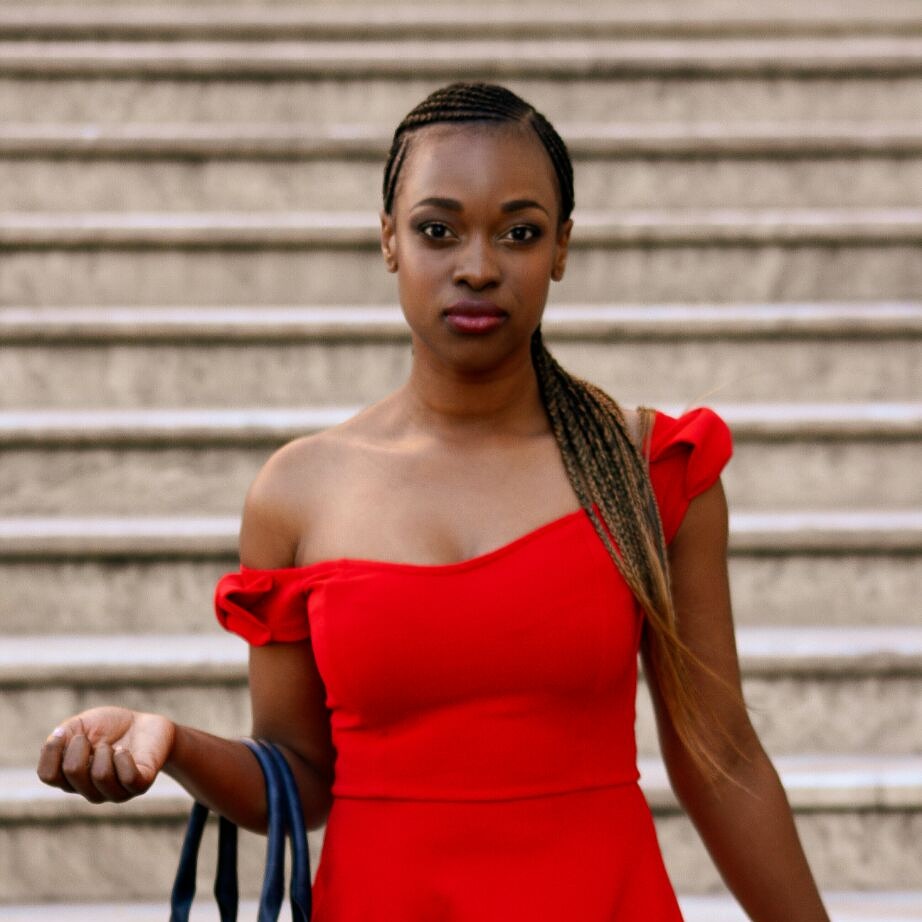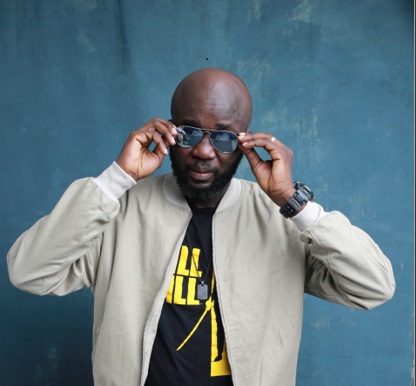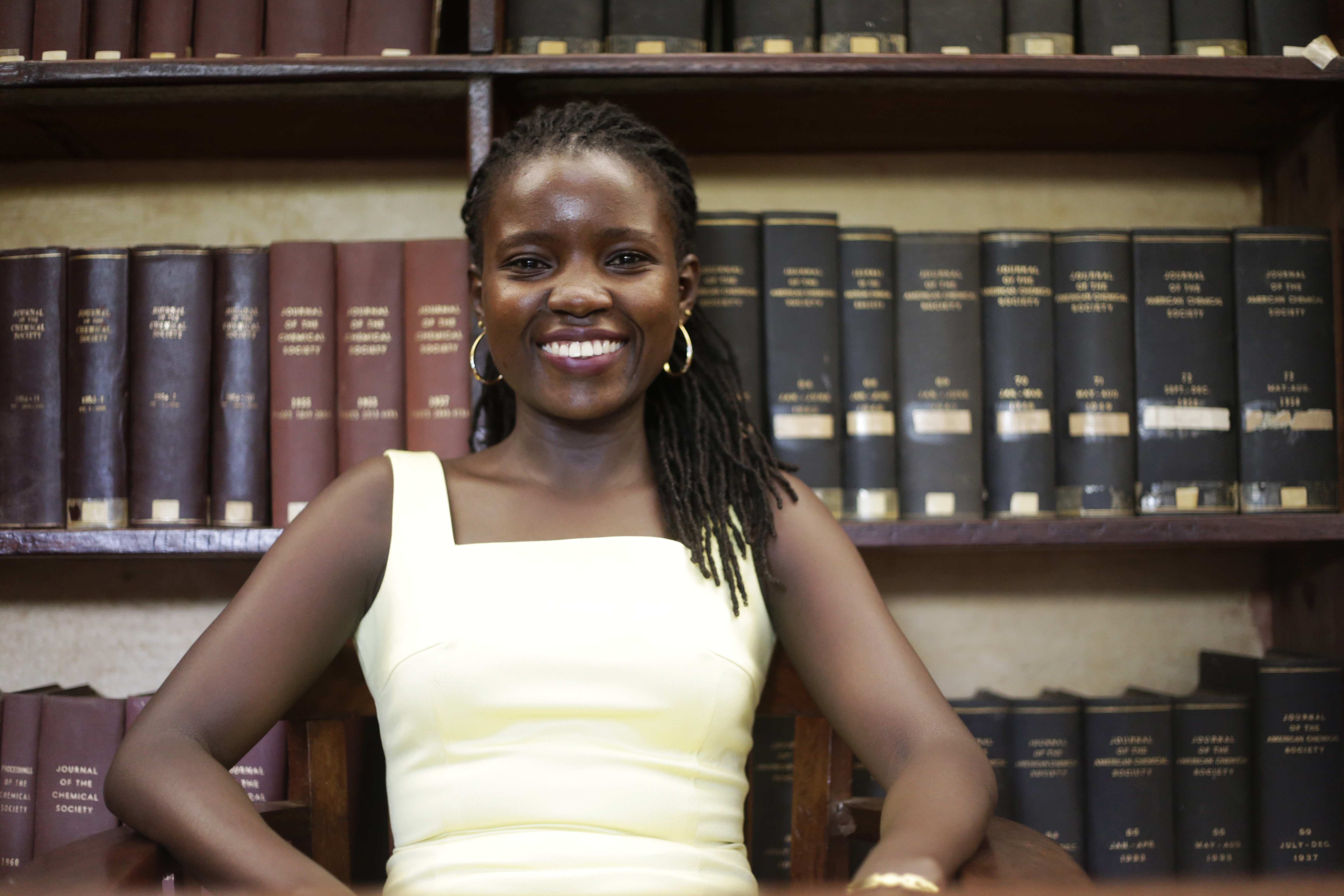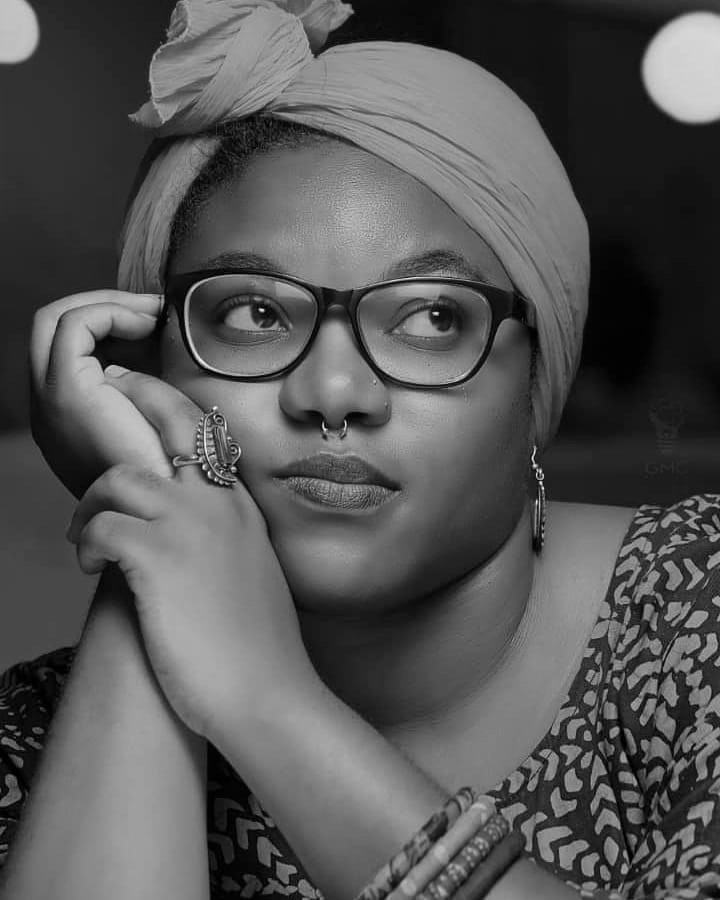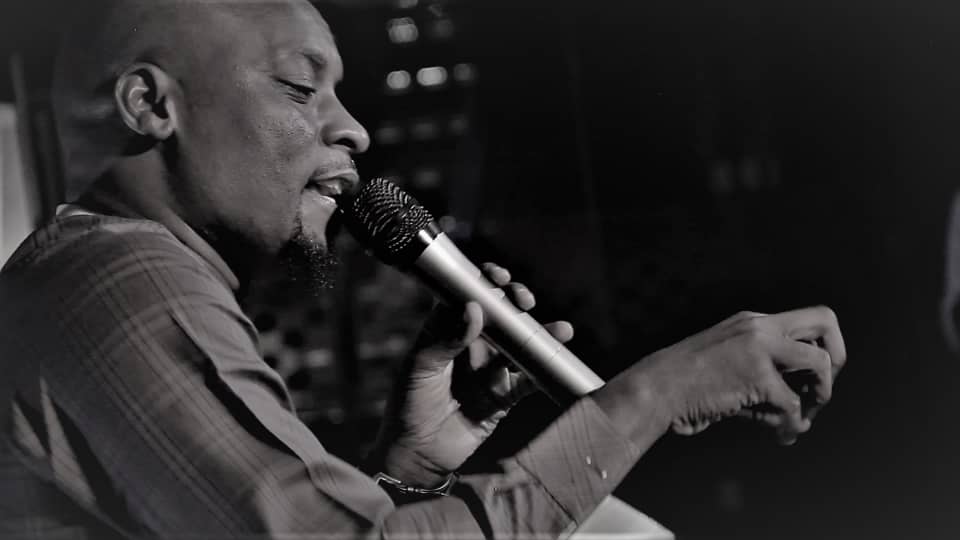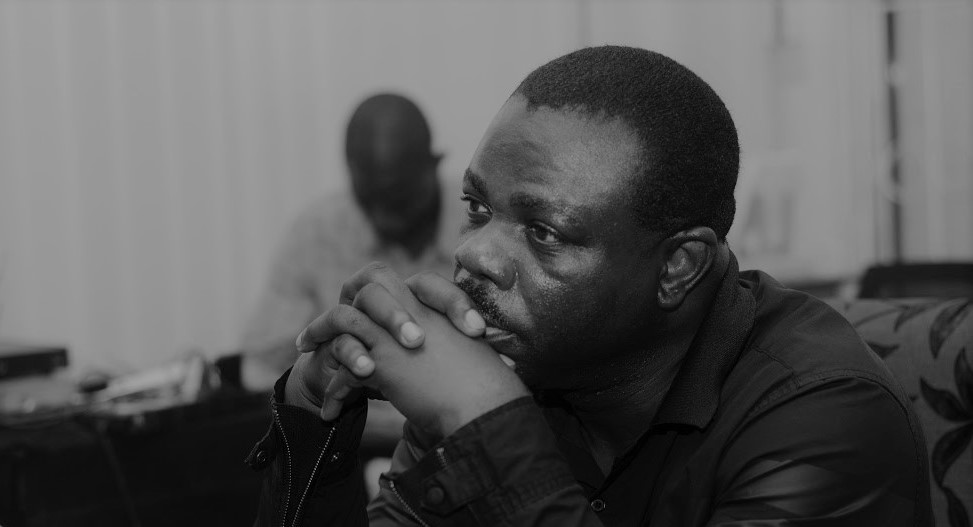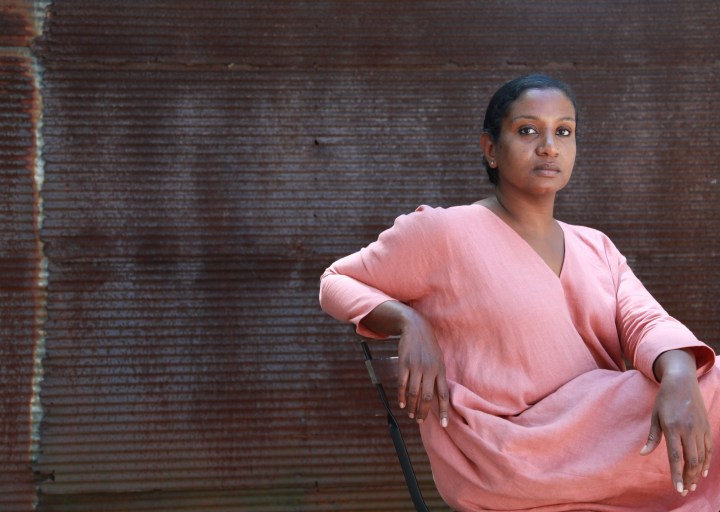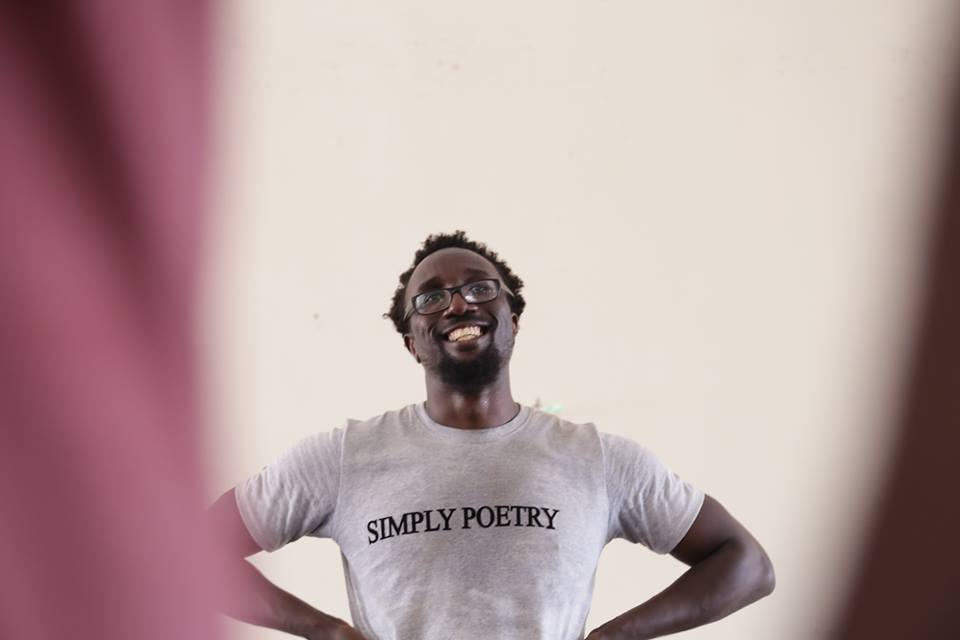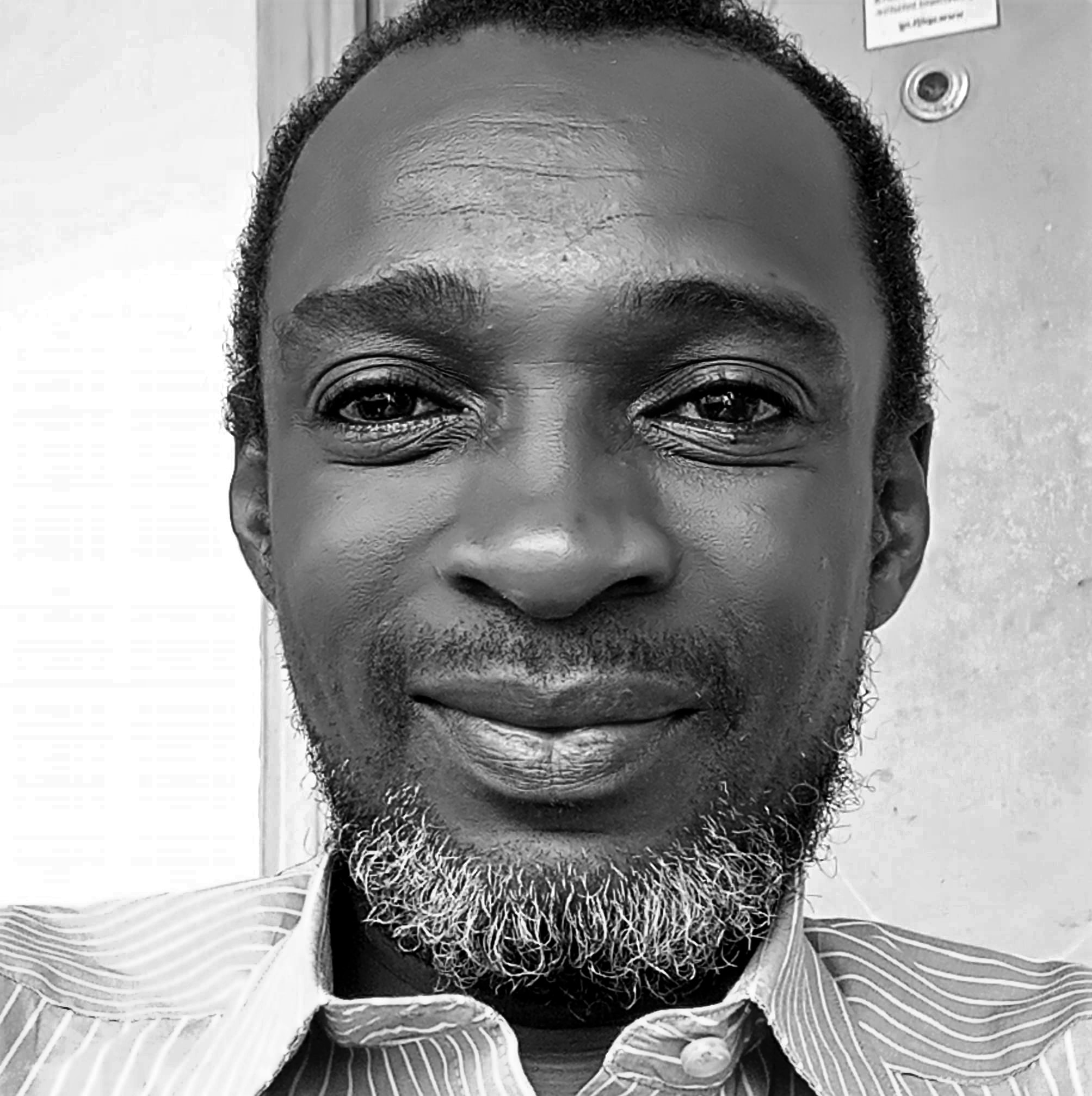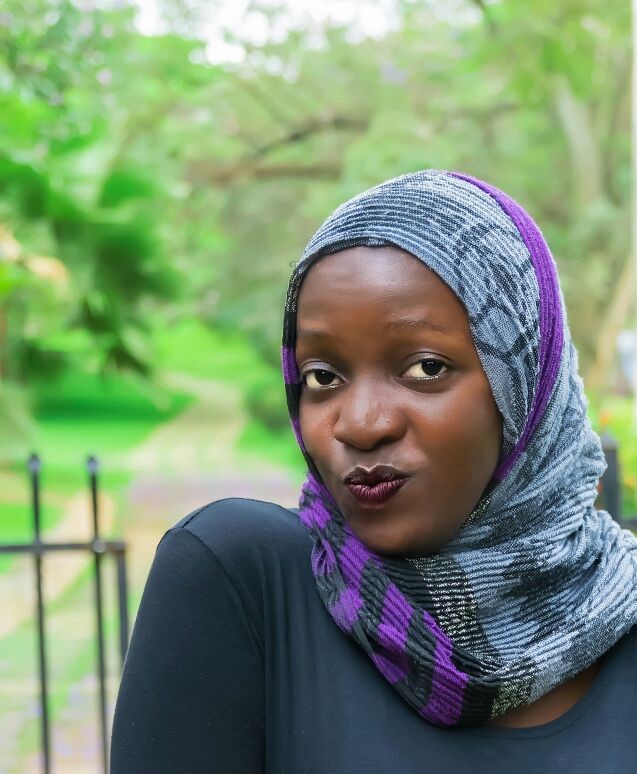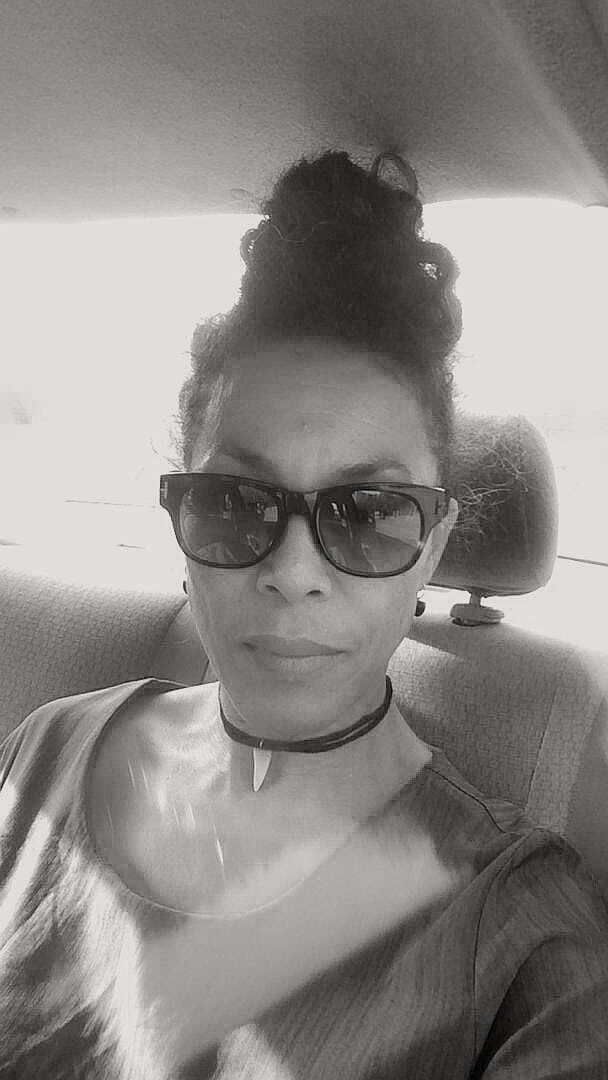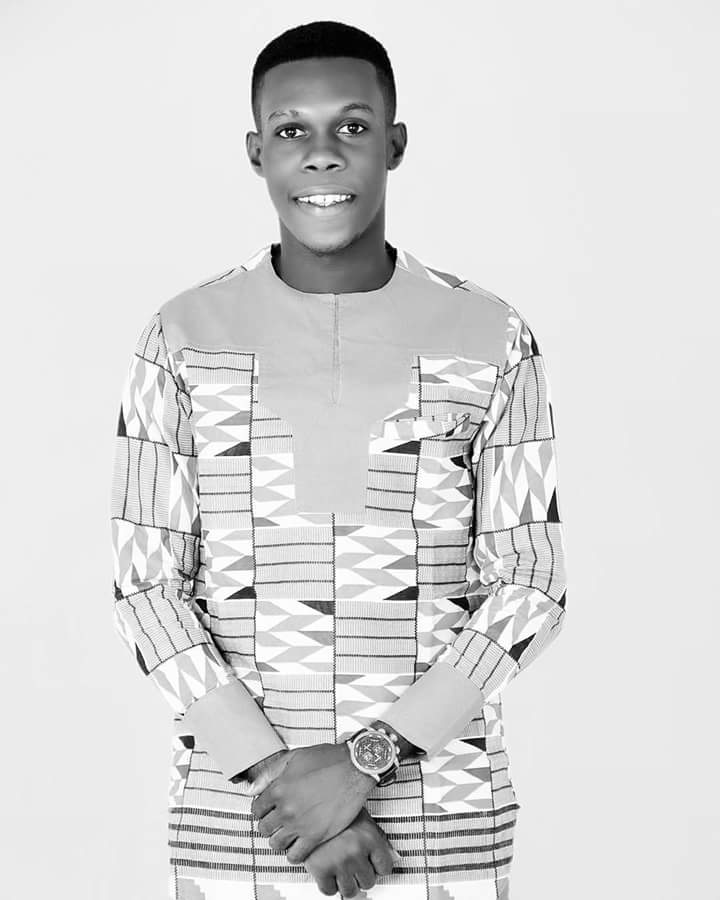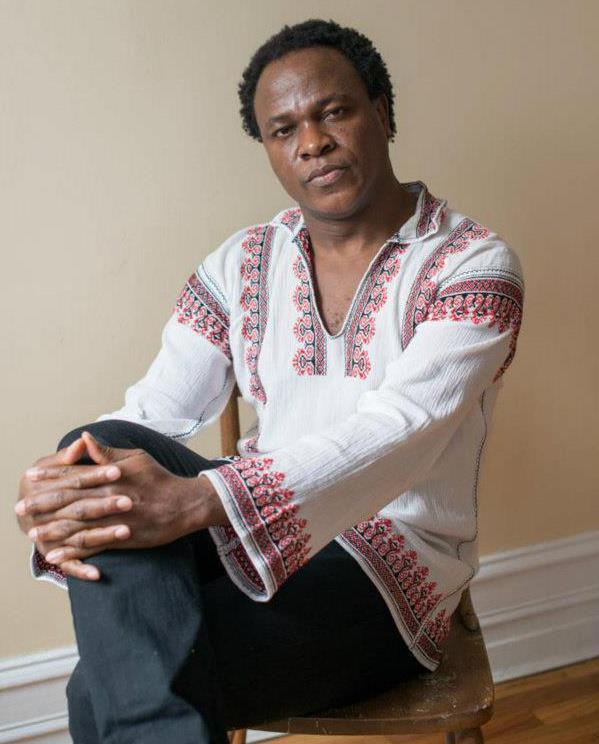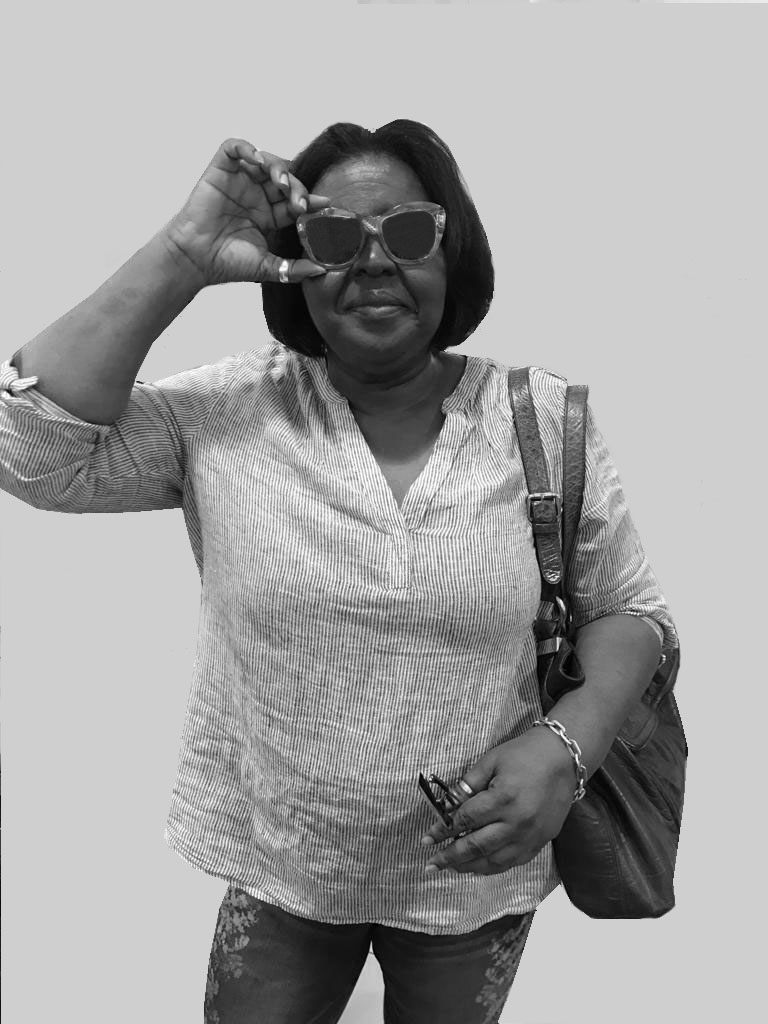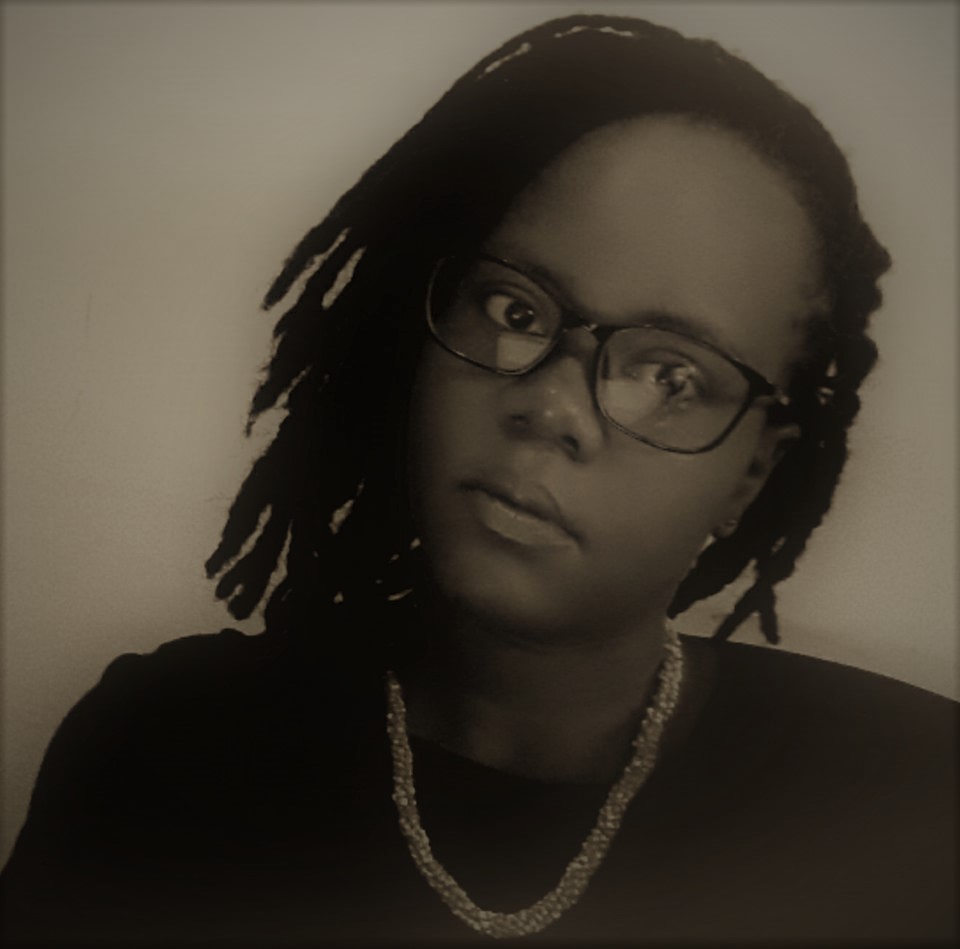My sense of identity is that of an observer making sense of scenery that presents itself. More like a camera capturing what is presented as it interprets the images into photos. But I must admit that even as lenses get blurry.
I like forests because they are full of mystery and are mystical. I love that they are full of life and yet quite secretive. If you’ve ever lived near a forest, you get that sense of latency, something just coiled and waiting, a sense of fullness even when you don’t see anything but the trees. It’s like a hum, a pulsation underneath everything.
Curiosity is a part of my being. I always want to know ‘the whys’ of every colour, every song, every kindness and every decision. I am that bag of turmoil, I trap the swiftness in emotional readjustment so fast I cannot let go of the outcomes in a hurry.
Western arrogant rationality, which tends to overhaul other perspectives has ushered every part of the world into the age of "posts": post-modernism, post-marxism, post-truth, post-humanism, and we even hear things such as post-Africanity. Fortunately, Africa has not caught the flu of this chaos completely. And, as the overfed children of hypercapitalism and consumer culture get exhausted in their boredom, Africa will be the place of what being human looks like—albeit if the Western power doesn't change us too soon.
However, I write every day when I can, so that I can genuinely rest on the days when I am experiencing a creative block. This means I do a lot of scheduling and pre-writing, because how else will we be able to stay consistent in a world where you are not always 100%?
In my new book, Hold Space for Me, I would say my sense of identity is one of a courageous, vulnerable, empath. I say courageous and vulnerable because you need courage to be open and commit to staying open and vulnerable so that you can connect and empathise more with people.
Most of my poems are bold and unapologetic. My wild imagination plays a big role in my thought process. I keep a notebook beside my bed in case an idea comes to me.
Western arrogant rationality, which tends to overhaul other perspectives has ushered every part of the world into the age of "posts": post-modernism, post-marxism, post-truth, post-humanism, and we even hear things such as post-Africanity. Fortunately, Africa has not caught the flu of this chaos completely. And, as the overfed children of hypercapitalism and consumer culture get exhausted in their boredom, Africa will be the place of what being human looks like—albeit if the Western power doesn't change us too soon.
I am an African female being who absorbs the pain of other African female beings - FGM, forced marriages, miscarriages, sexual assaults, depression, domestic violence; who writes about pain she did not experience because others, like her, have; and writes about it. I just want to say: “I see you”, “I feel you”, and most importantly, “someone cares”.
I am an African female being who absorbs the pain of other African female beings - FGM, forced marriages, miscarriages, sexual assaults, depression, domestic violence; who writes about pain she did not experience because others, like her, have; and writes about it. I just want to say: “I see you”, “I feel you”, and most importantly, “someone cares”.
Sometimes, I need something to remind me I exist in the world and poetry usually brings both the questions and the answers. .. If we do not know who we are, then how can we find out what we are here for?
How to Survive Being Single. It would save the life of anyone drowning in the burden of being single in a world that values doubles.
The closest identity I embody is that of water. Fluid, adaptable, under pressure to clean and under pressure to remain clean. That is how I explain my external impressions and internal turmoil.
No doubt, poetry is multi-directionally therapeutic. I am the first to be saved by my poems. - Zakiyyah Dzukogi
Most of the poems I write comes from a place of epiphany, but these epiphanies too are not accidental since they are thoughts, feelings and emotions that have gone through subconscious grooming or an internal workshop.
I believe that all my poems can save my own life, because they free up my imagination to think of what does exist and what may be abandoned.
"I am split between two forbidden places. So, I levitate. I’m afraid of being prodigal." -Isaiah Gbenga Adepoju
But there are some poems that pretty much write themselves, they just come to me and it is as easy as me putting pen to paper. These happen in the middle of conversation, or because I saw a bird fly, or thought about the smile of a boy, or because it’s raining outside.
Africa means my home to me, source of my life. Also I'm proud of being an African child. I know Africa as a beautiful Continent , but what is really sad , most Africans underestimate themselves because they are busy building the culture which is not theirs.
I don’t think anyone has one identity, especially when they’re alone. I cannot stand being one thing or being the same thing every day.
We have come home by Lenrie Peters remains my most fascinating poem. Every time I read this poem, I get fresh energy from it!
Africa is history, Africa is culture, Africa is legacy. The continent that needs no other continent to function if only we were allowed to manage and control our resources as Africans. Africa is the lightning that brings the rain.
The poem called Society’s Creed. It speaks about a host of the social issues that plague our society as depicted by a news briefing I happened to watch one evening.
How many times have we heard or read about the preventable deaths of people and changed the channel or flipped to the next page as if the deaths of human beings deserve no attention? This is true for many people.
These lines are so evocative, here is a love that withholds nothing and l literally hear that beautiful, precious alabaster box/life breaking whenever l read these lines.
I love love love the poems of Mary Oliver. Like me, she has spoken about her love for the poetry of Rumi. You can see it in her use of simple yet effective imagery and her clear descriptions of love. Her poem Wild Geese is one that I often share, write into cards and letters and even recorded myself reading to send to my mum when she was having a difficult day.
I am a bird. I often fly too high into the sky, get too close to the sun. My wings melt, and I crash into the sea. Perhaps I drown, salty water filling my lungs. But I always rise again. Eternal.
(Our) enemy is really ‘the numbers’ in any situation, where our voice is drowned by those who outnumber us, who make us feel bad about who we are, how we feel, especially how we put so much into question, and seek depth and intensity in the way we engage with the world—something that often ends up irritating everyone around us.
And living well in a world that colludes against life is hard work. And that is what makes writing poems hard—not the writing itself but the conditions I am trying to write within.
My people (Bakongo) are known to be the witches and wizards of Angola, the jokes make me smile, I´m from a lineage of people who deal with the spirit. And it makes me glad because Jaliya is a celebration of spirit and magic.
My people (Bakongo) are known to be the witches and wizards of Angola, the jokes make me smile, I´m from a lineage of people who deal with the spirit. And it makes me glad because Jaliya is a celebration of spirit and magic.
Saving life is a preserve of God and I would be delighted if somehow he used one of my poems to do so. Imagine just weaving words and salvaging the breath of a whole human being. That's big!
The universal society is what I always aim at speaking to (with my poetry), that I always hope to have an impact on.
To borrow the words of a poet I deeply admire, Yusef Komunyakaa, to me Africa is a “wounded paradise” (from his poem, “Tenebrae”). I ache for a reparative future.
Africa! My Africa has failed me. It has ceased to function as a continent, failed to recognize queer bodies, and failed to provide a safe milieu for our existence as humans. Africa has no tomorrow. Africa is a vast abyss of nothingness.
When anger fried me, Death settled in my mind Roaring and teasing, I did not succumb to him. Omadang Yowasi
I have never been a firm believer of poetry as a form of healing. I think it is the relatability of poems, how they make us feel like we are not alone, that brings strength to its readers. We all need something to hold on to, to believe in, a beacon of hope. And sometimes a poem is all of that.
. . .if you look at history, many places we now call developed were, to paraphrase a line from Conrad’s Heart of Darkness, one of the dark places of the earth. . .
I like Dis Poem because of the courage and aura behind the poem itself and the author in the person of Mutabaruka. I envy the bold and beautiful way with which it challenges inequality, racism, slavery, murder and injustices around the world.
I like Dis Poem because of the courage and aura behind the poem itself and the author in the person of Mutabaruka. I envy the bold and beautiful way with which it challenges inequality, racism, slavery, murder and injustices around the world.
Like my name, I am here, look, see, wait, just watch me, I am here. I am a sigh of relief. The conqueror of personal traumas, victory personified.
What's the point of writing if your audience cannot relate to your art?
So in both potential and real dimensions, the African century is rising and may render the Asian century very short-lived. The wars are in net reduction, economic success stories are being written, growth rates seek to double digits in a good number of countries and the youthful generations through global education, literature, art, music, film, sports and above all social media are less chauvinistic than the previous independence and post-independence generations.
But what’s contended in contemporary African poetry is of a different kind, the poets writing now are about how the individual African demands to be received, both at home against conventional norms, and globally against what’s stereotypically African.
Africa is my mother and father. Africa is a complicated home and a language I lost my fluency in. Africa is my beginning and end.
(Africa) is my home, and also for a good chunk of my favorite people. And home, to me, is the most important place of all. It’s where you live, love, dream, and eventually if you’re lucky, die. Potentially, it’s just like the cliché goes, the future.
I’m a spirit. Captured in a bloody body. I can fly too. Celestial. And crash into this earth dusty. I cry, captured in this fleshy mess. Like again… I’m born. Yeah, sometimes I fly daytime skies and see how close I can get to the sun.
Poetry in its complexities reflects and doesn't usually provide solutions. It can affect thought processes though and I think that if you can change how a person thinks then that person can change things around them and possibly save lives.
Poetry in its complexities reflects and doesn't usually provide solutions. It can affect thought processes though and I think that if you can change how a person thinks then that person can change things around them and possibly save lives.
Child-trafficking and child-labour are criminal and unjust. Sadly, many young girls who have been reduced to maids serving in homes in cities in Nigeria are daily abused, assaulted, raped and denied tasting the honey of knowledge. Dozens of such poor girls are yearning to have a better life and future, like the children they are paid peanuts to wash panties for or serve as nannies.
The person (being me and anyone who finds the shoe a fit) who this poem would reach out to is someone who has worn her sad like a uniform too long and is tired of the way it hangs useless on her body, how it grips on parts it should let go and lifts with the wind of endless sad experiences.
Konya Shamsrumi: What is the process of writing a poem like for you? Is it a lot of hard work or easy? James Eze: Any writing that requires the use of the imagination does not come easy to me. It is often a cross between inspiration and hard work. For me, the process of writing a poem begins with an inspiration and ends with a lot of hard work. Usually, it comes in form of an idea, a thought or an impulse in the deep recess of my mind which could be triggered by an experience, an observation or a flash of insight from a book, a song, a movie or a mere ripple on the face of a stream.
Still young, you reshuffle positions, change a thing or two, furnish and finish rough edges. This editing process is a continuous loop, much like a refining process of wine. At a point, you just must stop and let time make the poem age into something even sweeter!
Still young, you reshuffle positions, change a thing or two, furnish and finish rough edges. This editing process is a continuous loop, much like a refining process of wine. At a point, you just must stop and let time make the poem age into something even sweeter!
Let me say this: writing a poem somehow saves me. In the sense that, an animal of experience has been let out its cage, has been given freedom: an experience has left me so it loses the power to taunt me. In giving my experience the luxury of language, I have freed it and in turn freed myself. For instance, writing about my depression has greatly helped me cope with it.
Africa in its potential and realities is me, it's us. It’s a reckoning with ourselves. It’s a becoming. Movement and stillness. Where past, present, and future bleed into each other.
Africa in its potential and realities is me, it's us. It’s a reckoning with ourselves. It’s a becoming. Movement and stillness. Where past, present, and future bleed into each other.
An African Elegy by Ben Okri is one poem that I have been most impressed and fascinated by. Why? It is profoundly revealing of what it is we as humans, especially Africans, are about on this earth.






